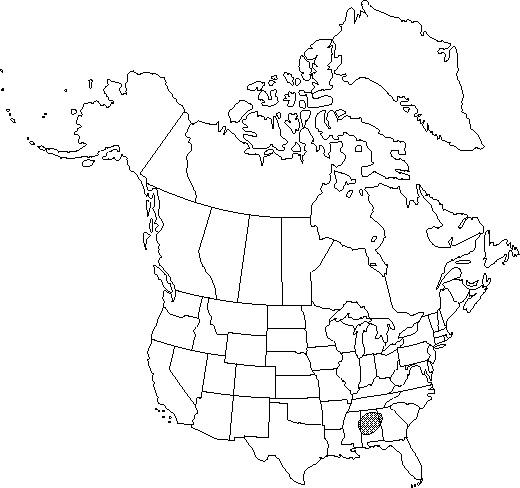Difference between revisions of "Thalictrum debile"
Amer. J. Sci. Arts 45: 175. 1843.
FNA>Volume Importer |
FNA>Volume Importer |
(No difference)
| |
Revision as of 19:55, 24 September 2019
Roots brownish, fusiform-tuberous with dried ribs. Stems reclining, branched and flexible proximally, 10-40 cm, glabrous. Leaves: proximal cauline leaves petiolate, 1-3×-ternately compound; distal cauline leaves petiolate or sessile, 1-2×-ternately compound or simple. Leaf blade: leaflets ovate or obovate to reniform or orbiculate, apically shallowly to deeply 3-7-lobed, rarely undivided, 4-15 mm wide, surfaces glabrous. Inflorescences terminal and axillary, panicles, elongate, few flowered. Flowers: sepals whitish, lanceolate to obovate, 1.5-2.7 mm; filaments colored, not white, 1.5-2 mm; anthers 1.7-2.5 mm, mucronate; stigma color unknown. Achenes 1-6, not reflexed, nearly sessile; stipe 0.1-0.3 mm; body oblong to elliptic-lanceolate, not compressed, 3-3.7 × 0.7-1.2 mm, glabrous, prominently 6-8-veined, veins not anastomosing; beak 1.3-2 mm.
Phenology: Flowering in early spring (Mar–Apr).
Habitat: Rich, rocky, limestone woods, often in wet, alluvial soil
Elevation: 50-300 m
Distribution

Ala., Ga., Miss.
Discussion
Of conservation concern.
Thalictrum debile is closely related to T. arkansanum and T. texanum. The distinctions among the three species should be further studied.
Selected References
None.